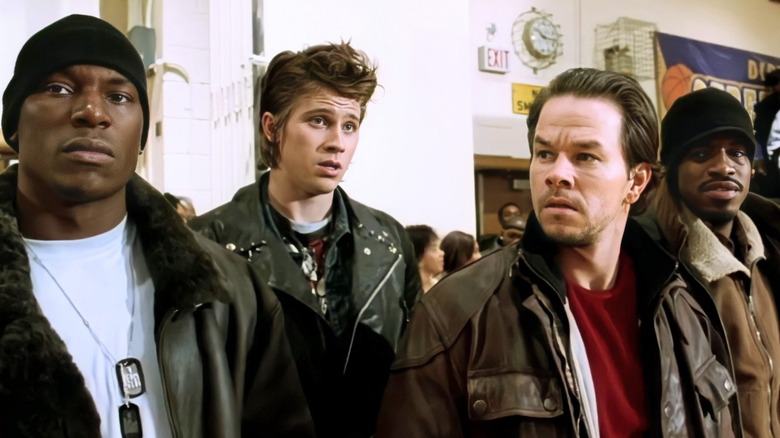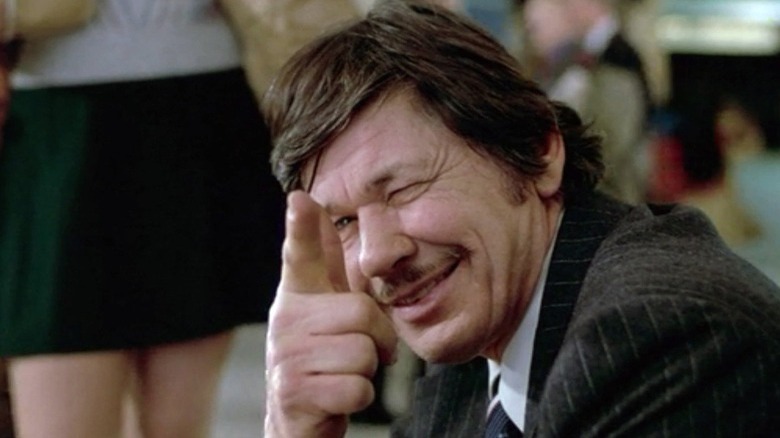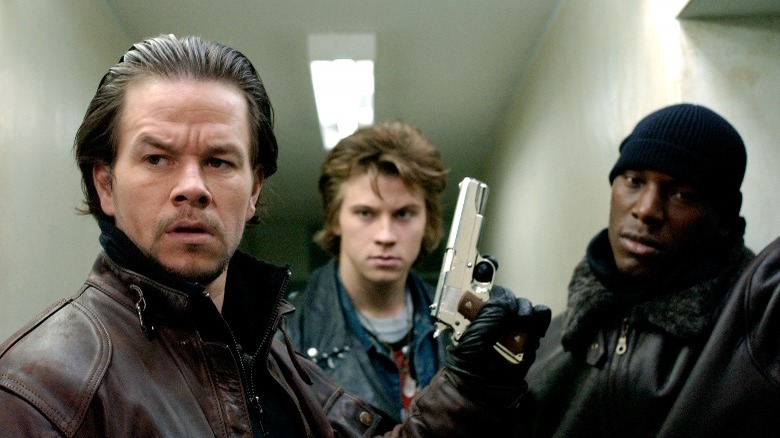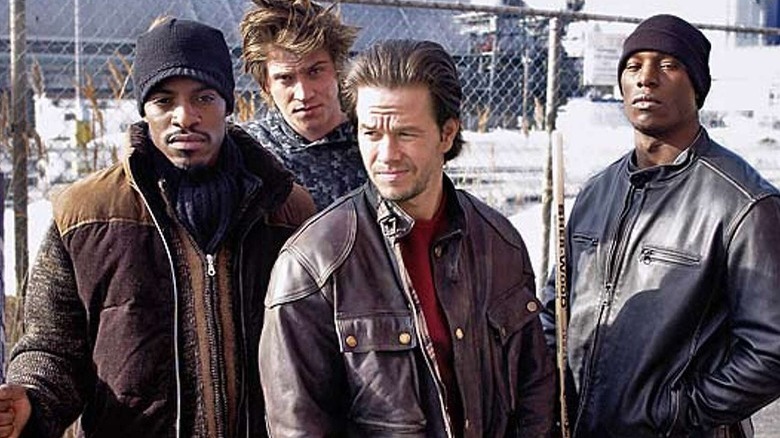The Film Genre That Inspired John Singleton's Four Brothers
Just a decade after the release of his 1991 classic debut "Boyz N The Hood," John Singleton began to work pretty much exclusively on action films, devising his own slick, polished style for franchise sequels like 2000's "Shaft" and 2003's "2 Fast 2 Furious." The social issue dramas on which his career had been built, movies with richness and depth like "Poetic Justice" or the unjustly ignored hate-crime saga "Rosewood," were left behind. Singleton's strength as a filmmaker meant that he was continuing to direct movies with immediacy, motion, and a clear point-of-view inspired by past films and his own observations on life. Critic Roger Ebert called his "Shaft" "a blaxploitation film with a modern urban drama trapped inside" and that became something of a template for Singleton's action films.
Of course, 2005's "Four Brothers" represents that as well. In its decaying Rust Belt location photography and its portraits of the brothers having taken up lives of crime, the movie carries sympathy for social suffering while also going all-in on a gritty action filmmaking style Singleton borrowed from the movies of his youth. While "Four Brothers" is far from the grounded, fairly autobiographical "Boyz N The Hood" (Singleton's original concept for which was almost much more wild and even more L.A.), it still shows a filmmaker working entirely on his own plane. Here, his inspiration was the vigilante films (side-by-side with "urban western") of the 1970s.
The urban western
"I grew up on films like ... 'Death Wish," John Singleton told blackfilm.com while explaining the inspiration for "Four Brothers." "And all of the old Westerns used to have a revenge or vigilante tinge to 'em."
"Death Wish" followed Paul Kersey (Charles Bronson), an architect seeking vengeance after the assaults of his wife and daughter. The man's carefully assembled life is torn apart by the lawlessness of the underworld, and his only response is lawlessness in turn — a willingness to kill.
Other '70s films in the "urban western" category drew from the same bag of tricks, whether in the sensationalist true story of 1973's "Walking Tall" or the adventures of the titular murderous police inspector in the controversial "Dirty Harry" series. Some of these movies dug into these characters with complexity, unsettling some viewers with their fascistic displays of vigilante violence while eliciting cheers from others by design. What they have in common is a portrait of modern life as an inescapable hellscape — only one man with a gun can help, and he's no good guy.
If that sounds a bit like the standard Hollywood conception of the old west, it probably came from the creative voices involved. Directors like Sam Peckinpah and Don Siegel, and stars like Clint Eastwood and Charles Bronson, crossed over genres often. The back-and-forth created a new cinematic language. As Singleton said in the blackfilm.com interview, "the films that Charles Bronson was making in the early '70s were urbanized Westerns."
Brothers seeking vengeance
"Four Brothers" is an "urban western" itself. It's a revenge and vigilante story, using the framework of the 1965 western "The Sons of Katie Elder" as a loose inspiration. In that movie, four adult brothers reunite on the occasion of their mother's death and end up targeted by a local criminal. "Four Brothers" transposes that action to Detroit.
When Evelyn Mercer (Fionnula Flanagan) is killed during a convenience store robbery, her adopted sons Angel (Tyrese Gibson), Bobby (Mark Wahlberg, long before making the move to "more meaningful content"), Jeremiah (Andre Benjamin), and Jack (Garrett Hedlund), come together. Their lives have diverged in major ways, with some turning towards crime. Now that they're seeking vengeance, those criminal histories will come in handy. The violence that follows is in line with the '70s crime pictures that inspired Singleton.
As it turns out, Evelyn's murder was planned by a local criminal element. The question is who was responsible — when it's discovered that lifelong Union man Jeremiah, who was the only brother to stick around and help Evelyn, has business with gangster Victor Sweet (Chiwetel Ejiofor), the others get suspicious. Jeremiah's business was failing, and Evelyn's $400,000 life insurance policy could uplift him. Jeremiah makes it clear that Sweet was strong-arming his business for protection money, causing it to fail. He put his money into helping Evelyn — he had nothing to do with her death. But even one of the cops investigating Evelyn's death is on Sweet's payroll.
Paying tribute to classic crime movies
One thing that makes "Four Brothers" exciting, even now, is the lawlessness of its world, the lack of rules, which comes directly from the "urban westerns" John Singleton watched growing up. In those movies corruption was the word — one unsympathetic, violent man may be enough to save the day, but that wouldn't fix the whole unjust system. For the Mercer brothers, their only way out was leaving Detroit the second they could — now, they're stuck there again, until they're able to break free from this case.
The brothers make up to the extent that they can, and Jeremiah and Bobby team up to face off against Victor Sweet while Angel tries to take down the dirty cop, Fowler (Josh Charles). Bobby's arrival at the climax, a figure in the distance walking across frozen Lake St. Clair, is incredibly cool — a bit like a Midwestern "Lawrence of Arabia" riff. Even if that's not a movie that Singleton cited among the many he claimed as influences.
Singleton told blackfilm.com about his voracious film-watching as a kid, saying that "all I did was watch movies ... I could just look out the window and I could see Kung Fu movies and blaxploitation movies and slasher movies." "Four Brothers" was clearly made by someone obsessed with genre film. Even if it isn't one of Singleton's best movies, it's still a great, gnarly display of film mastery and a tribute to a singularly nihilistic era of American film.



